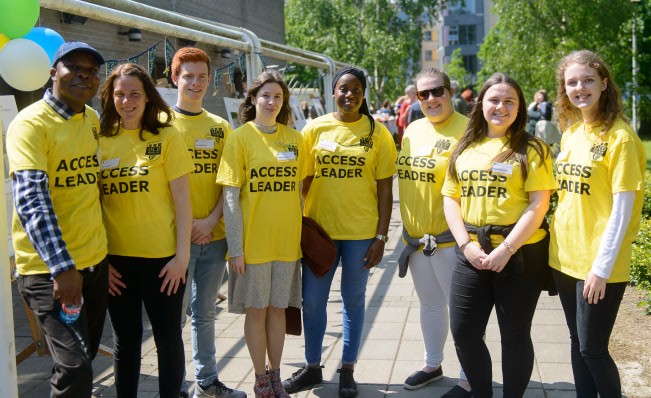What is DARE?
DARE is a third level alternative admissions scheme for school-leavers under the age of 23 as of 1 January 2026 whose disabilities have had a negative impact on their second level education.
Applicants to DARE can present with an Irish Leaving Certificate, A-Levels and/or other EU qualifications.
DARE offers reduced points places to school leavers who, as a result of having a disability, have experienced additional educational challenges in second level education.
Find out below if your disability is one considered under the DARE scheme.
Additional Information
Click on the following links for more useful sources of information to make a DARE application.
Is DARE for me?
To be eligible for DARE you must meet both the DARE Educational Impact criteria and DARE Evidence of Disability criteria.
What types of disabilities does DARE consider?
- Attention Deficit Disorder (ADD)/Attention Deficit Hyperactivity Disorder (ADHD)
- Autistic Spectrum Disorder (including Asperger’s Syndrome)
- Blind/Vision Impaired
- Deaf/Hard of Hearing
- Developmental Co-ordination Disorder (DCD) – Dyspraxia
- Dyscalculia/ Significant Numeracy Difficulties
- Dyslexia/ Significant Literacy Difficulties
- Mental Health Condition
- Neurological Condition (including Brain Injury and Epilepsy)
- Physical Disability
- Significant Ongoing Illness
- Speech and Language Communication Disorder
Research has identified that students with Physical, Blind/Vision Impaired or Deaf/Hard of Hearing disabilities are particularly under-represented in higher education in Ireland relative to all students with disabilities. In order to increase the numbers of DARE students with Physical, Blind/Vision Impaired or Deaf/Hard of Hearing disabilities being admitted to higher education, the DARE colleges have agreed to prioritise these two groups when allocating reduced points places.
If you apply to DARE and meet the application criteria (that is, are deemed eligible for DARE) you may be offered a place even if you do not have enough Leaving Certificate points for your preferred course. Each participating college and university has a reserved number of places to offer eligible DARE applicants at lower Leaving Certificate points.
Other access routes to higher education
Across the Irish higher education sector there are a range of schemes, scholarships and awards which aim to help people get into college. To find out more about the support available visit the websites of our participating institutions.

What evidence of my Disability do I need to provide?
Find out what evidence of your disability DARE requires you to submit as part of your application.

How do I apply?
You can apply to DARE via cao.ie from 5 November but you should start to review the DARE Handbook and the guides on this website with your parent(s)/guardian(s) as soon as you can before making an application.
